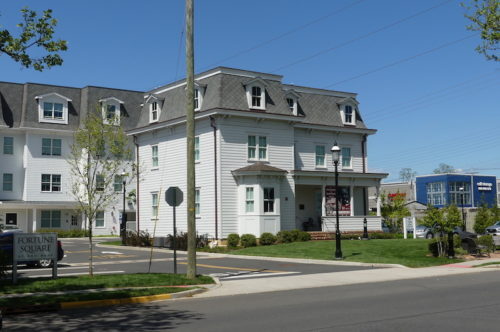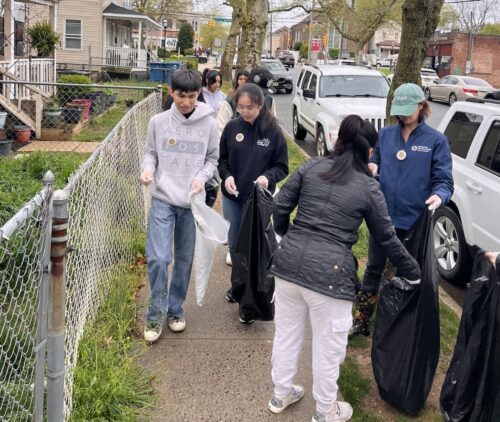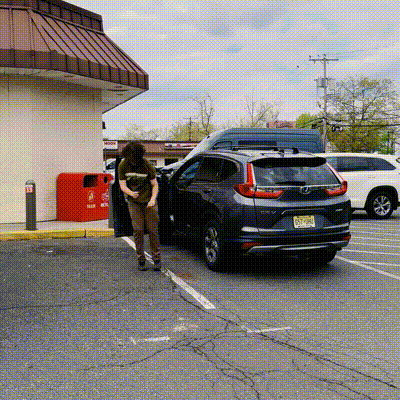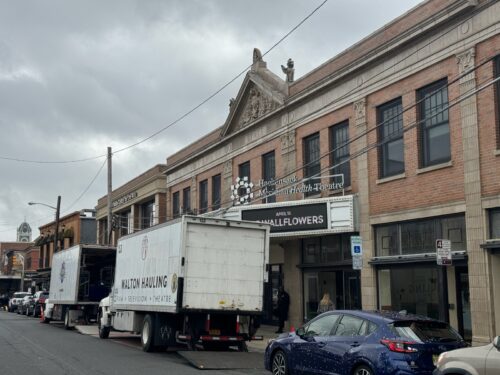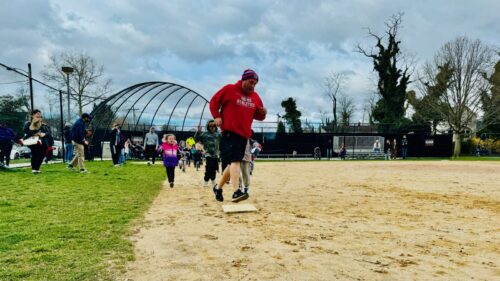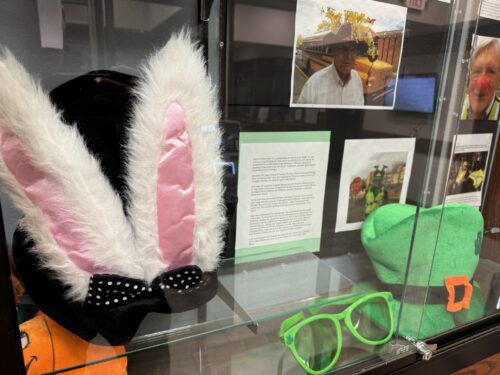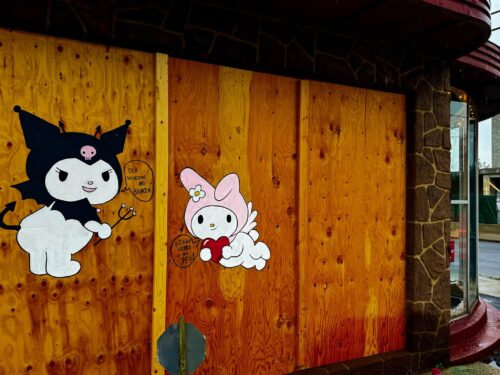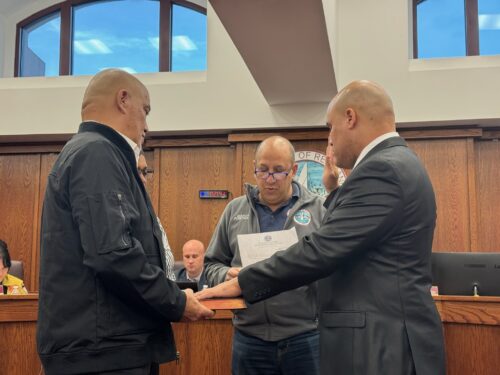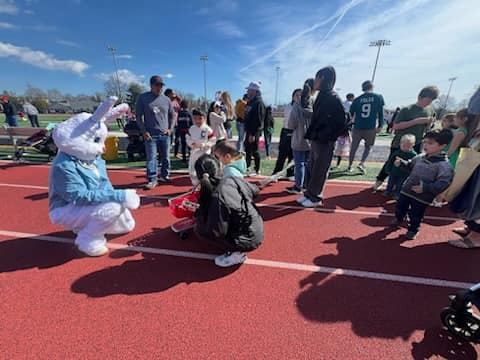Keith Glass is a 56-year-old Red Bank-based pro basketball agent who’s got some withering views about the state of the NBA, its players, and even the role played by people who do what he does for a living.
He lays it all out in Taking Shots: Tall Tales, Bizarre Battles and the Incredible Truth about the NBA, published this week by HC, an imprint of HarperCollins. (Glass will be at the Barnes & Noble in Holmdel signing copies on Monday. See below for details.)
redbankgreen caught up earlier this week with Glass at his Rumson home, which he shares with his wife, former Turkish pro hoopster and sportscaster Aylin Guney Glass. We put him through the ten-question Human Bites drill.
You write in your book that NBA games are boring, ticket prices are sky-high, the players make way too much money, and they have a ridiculous sense of entitlement. How much of this is a matter of individual character?
I don’t think too much. There are some character issues to it, but as I say in the book, I think it’s an unnatural infusion of money into the human body. Anybody who makes this kind of money at a very young age, it comes to a point where you don’t know how to act, and nobody can tell you how to act. Because our system is based on money, and the person with the money does the talking.
You can’t coach these kids. You can’t teach them, because everything they were supposed to work for, you’ve given it to them up front. And that’s not the way to do it. Do you ever pay before you have your lawn mowed? I don’t. Mow the lawn, and then I’m going to pay you.
We’ve reversed the process, so reverse it back. Don’t guarantee people for six years at a time, for six, seven, eight million a year. I think it’s a disincentive to work. You know, there are very few Michael Jordans, or Larry Birds, or Magic Johnsons. We’re treating these guys like they have that character. And that kind of character is not normal.
Tell me about the genesis of the book. How did it come about?
Things happen to me that don’t seem to happen to other people, or I remember them differently. People always just seemed to enjoy me telling them the stories. So I started to write them down, maybe ten years ago, for myself, for my kids [Glass has five], so I could save my sanity.
In this room, 10 years ago, I wrote the first one, about Mahmoud Abdul-Rauf [a client and Denver Nuggets star who caused a scandal by stretching on the floor during the playing of the national anthem]. That was a very poignant, dramatic time for me, and hurtful, because I ended up getting terminated as his agent. And I remember that after I got it down, I just felt great. I thought, ‘You don’t have to remember it anymore. You don’t have to carry it anymore.’ And each time I do that, it’s like freeing up space on your brain.
The writing’s been fun. No ghostwriter. They asked me if I could give them 100,000 words in my own words, the way I talk.
One of the distinguishing elements of your 28-year career has been your representation of white guys who play center. You call the chapter about this Eighty-one Feet of White Centers. Do you specialize in Joe Palookas?
Joe Palookas, yeah, but you can’t be a specialist, you have to adapt. I represented big white centers because early on that’s all that I could get. Then I had a stage in my career when I had all point guards. Whatever you can do, you have to survive.
One of your clients, Mark Eaton, the seven-foot-five center of the Utah Jazz, somehow made the transition from auto mechanic to college benchwarmer under you, when you were coaching at UCLA with Larry Brown to NBA all-star. Was Eaton your most satisfying discovery?
I think him and [now-Chicago Bulls coach] Scott Skiles. Really, it’s hard to pick. I’ve had great guys.
My guys have not been the prima donnas of the league. I don’t get stars. That’s why I’ve been able to survive. I’m not willing to do what it takes in the first place to get them as clients. I’m not willing get cars for them. I don’t buy my children cars, so I’m not going to buy a player a car.
You say that the players are overpaid. By extension, you must be as well, no?
Oh, there’s no question. I ought to be on the post office wall in Red Bank, that’s where my picture should be. But I’ve been saying this for 25 years: We’re stealing money.
Don’t get me wrong, they wanna pay me, I’m gonna take it. But you gotta be kidding me: You get $6 million to play basketball? Ten million to play basketball, and I get a percentage of that? And I’m gonna sit here, look you in the face and tell you I’m not overpaid? Of course we’re overpaid. But you guys are paying for it.
Are you concerned this book might have professional repercussions for you or your clients?
I don’t know. Obviously, it’s published, so I guess not.
I just hope people will see it for what it is. I’m trying to help a game I love. I coached Mater Dei High School [in Middletown] for 12 years; I coached Rumson for two years. I made 17 cents an hour. I’ve paid my dues. I love the game. I don’t like seeing it the way it is. I want to try to get it back to the way it was.
You grew up on Long Island. How did you end up in the Red Bank area?
I was moving back to New York from L.A. after becoming an attorney. But I couldn’t afford anything in New York, and kept drawing concentric circles around the city until I found something I could afford, and I ended up in Middletown. I’ve been in this area 20 years now.
Your wife, Aylin, played professionally in Turkey. How do you match up on the court?
She can’t beat me. She thinks she can. She’ll even deny that we played once and I beat her. She just blocked it out. Because she’s a pro in her country, and she plays an old man here, and I won, and she just can’t deal with it. [To his wife:] It never happened, did it honey?
If there were to be a movie based on your book, who would play Keith Glass?
It would have to be a very, very good-looking guy, obviously. I don’t know who they could possibly get. Somebody suggested Adam Sandler, but I don’t think he’s attractive enough. I’m gonna hold out for Brad Pitt. That would be closer.
Finally, which is more important, good food or comfortable shoes?
Good food. You can take your shoes off.
Meet Keith Glass
Monday, March 5, 7p
Barnes & Noble
2134 Highway 35 South
Holmdel
732-275-0620




